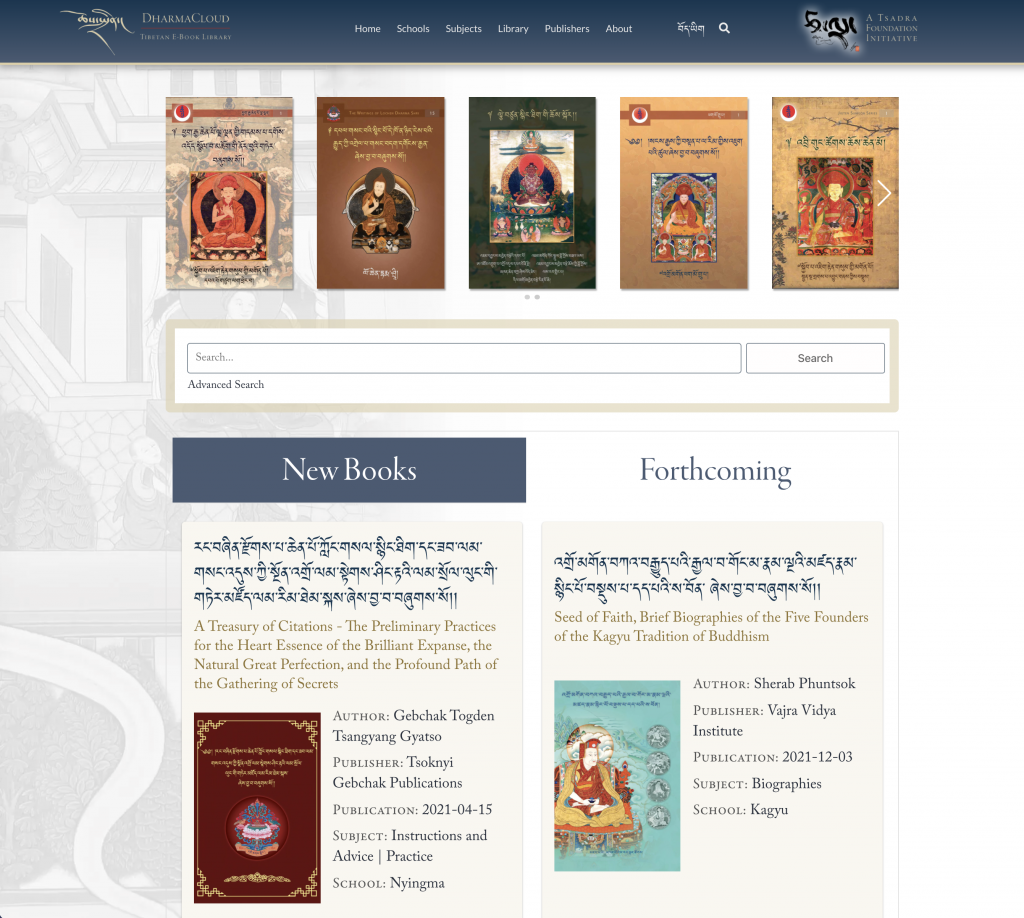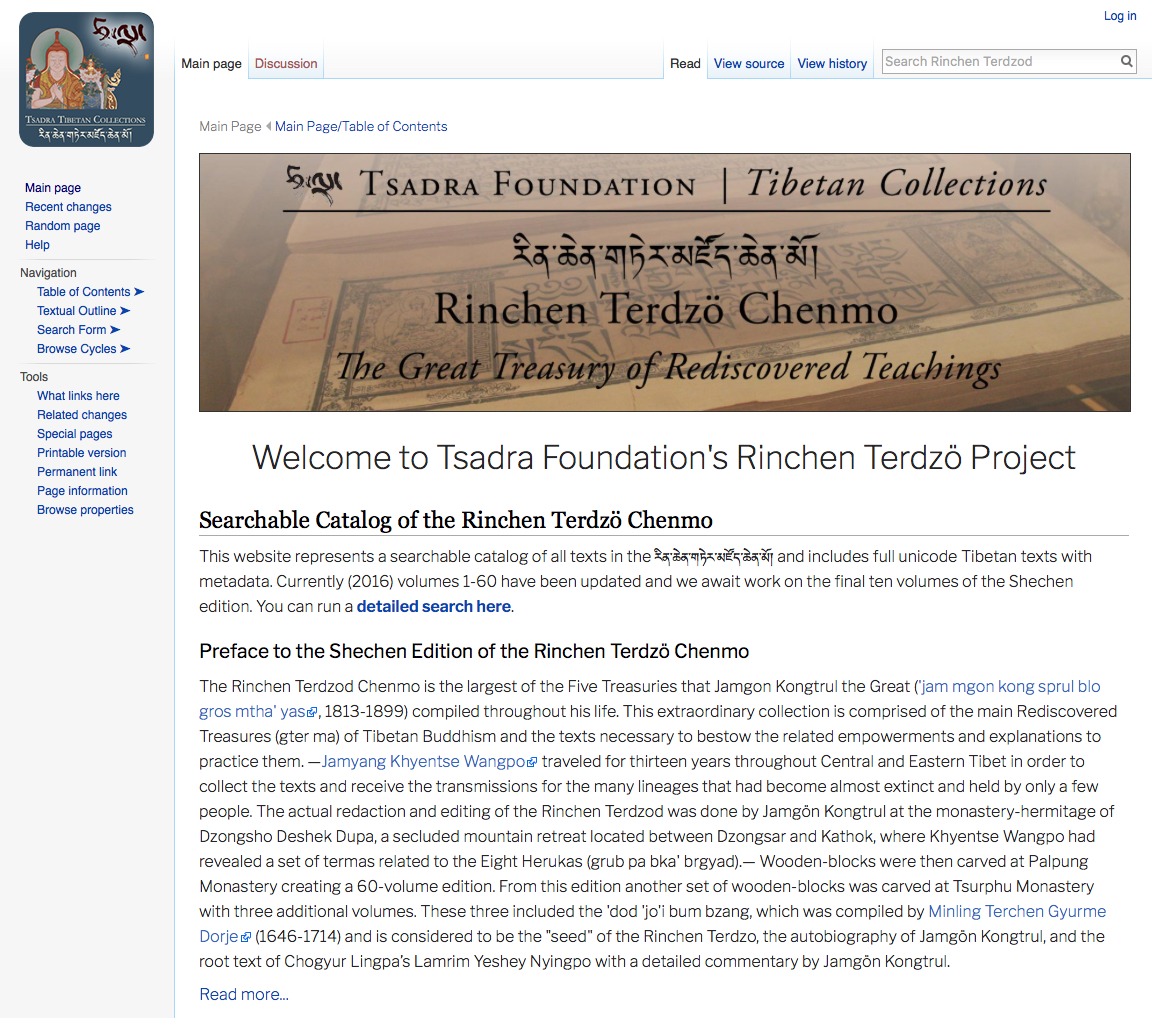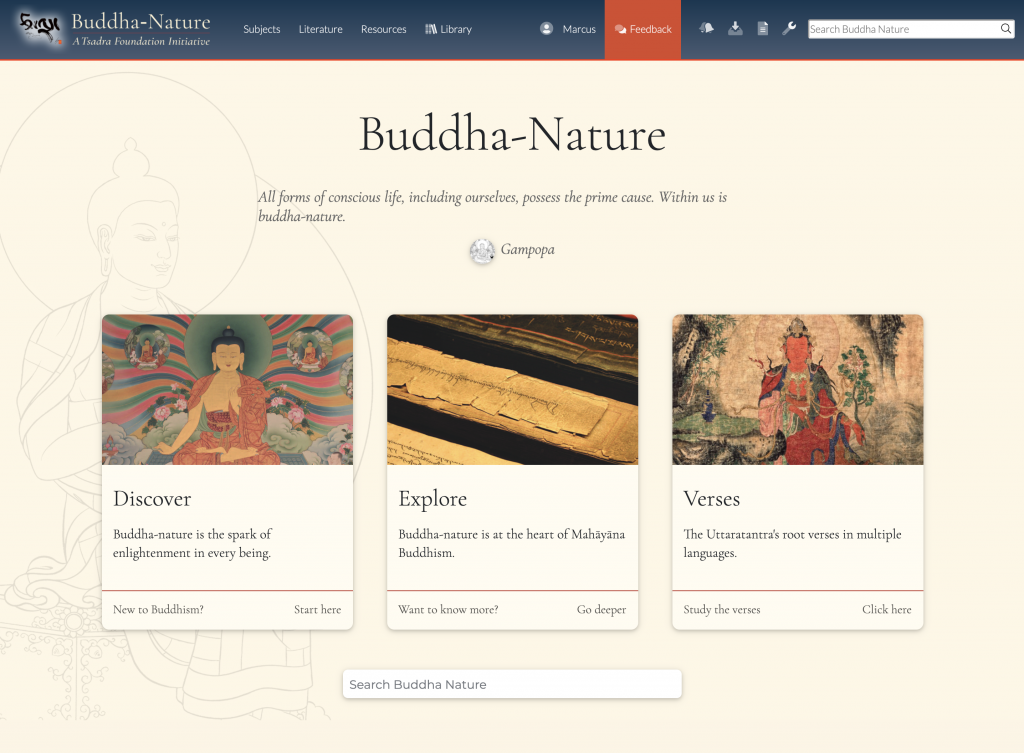Translation and Research Tools
From its inception, Tsadra Foundation supported translators of Tibetan Buddhist texts into English and French. In view of the arduous and often solitary work entailed in such translating, it soon became evident that further support would be beneficial so that translators can have access to the primary sources as well as the secondary literature related to their translation project. The complexity of the textual environments translators have to deal with while translating highly technical Buddhist texts makes time-tested philological and text-critical methods a necessity. From this perspective, it is Tsadra’s understanding that the translation work of Tibetan Buddhist texts that are often extremely specialized in terms of genre and register cannot be separated from research activities.
As a consequence, Tsadra Foundation began organizing conferences of Buddhist Studies scholars and translators and developed a research department to support their work. Many resources in the form of online bibliographical, lexicographical, and textual databases were developed to better support translation as a research activity. These tools facilitate access to available scholarship and research, the consultation of texts and commentaries, and the production of searchable digitized texts. This unique network of interconnected digital resources has been made possible by the research department’s continuous effort to keep up with advancements in academic research and technologies. Since these resources make the implementation of a robust methodological approach possible and therefore directly contribute to the quality of translations, it is Tsadra Foundation’s mission to ensure that scholars translating Tibetan Buddhist texts will have access to the best possible digital environment for their research.
As we look into the future, more and more searchable digitized texts will become available and the range of research methods will expand. On the backdrop of this evolution, scholars and translators of Tibetan and Buddhist Studies are beginning to use new methods at the intersection of classical philology, corpus-linguistics, digital humanities, and text mining. Tsadra Foundation’s areas of development of these new text-analytical methodologies and tools include the following priorities: search and information retrieval of texts and lexicographical units, clustering of texts and documents, extraction of information through topic modeling, intertextuality detection, and mapping of Buddhist technical terminology into semantic groups.
In this fast-evolving environment, it is Tsadra Foundation’s objective to continue developing innovative research partnerships and projects to support the community of scholars and translators of Tibetan Buddhist texts.
Boulder Research Library
Tsadra Foundation has been slowly building a unique research library for translators of Tibetan texts in Boulder, Colorado. The library and the research department staff have been supporting translators with research projects and access to books, articles, and database content for over a decade. The library and research center also supports translators and scholars of Tibetan Buddhism in Colorado through meetings, salons, and occasional classes, as well as resources for students at local universities. If you are in the Boulder-Denver area and wish to be added to the email list, please contact research@tsadra.org.
Translation Consultants
Ringu Tulku Rinpoche is a Tibetan Buddhist Master of the Kagyu Order. He was trained in all schools of Tibetan Buddhism under many great masters including HH the 16th Gyalwang Karmapa and HH Dilgo Khyentse Rinpoche. He took his formal education at Namgyal Institute of Tibetology, Sikkim and Sampurnananda Sanskrit University, Varanasi, India. He served as Tibetan Textbook Writer and Professor of Tibetan Studies in Sikkim for 25 years. Ringu Tulku Rinpoche has offered his support and assistance for the Treasury of Precious Instructions (Damngak Rinpoché Dzö) translation project, as well as being available to help translators on other works.
Acharya Lama Tenpa Gyaltsen completed his education at Karma Shri Nalanda Institute in Sikkim, where he was a member of the Rumtek shedra’s first class, graduating as Acharya in 1991. He then completed a three-year retreat in 1997. Currently he is Chancellor and Head of Study for Nitartha Institute and professor of Buddhist studies at Naropa University. Lama Tenpa has worked with Tsadra Foundation translators for many years and continues to make himself available for consultation on translation issues.
Digital Resources
An amazing amount of useful resources are now available online for the study and practice of Tibetan Buddhism, as well as specialized resources for translators of Tibetan, from dictionaries to databases and online libraries. Tsadra Foundation and its founders have been involved in the creation and development of many resources and you can find more information about various projects here and in the resources and tools list.
Tsadra Foundation aims to support the work of translators and researchers of Tibetan Buddhism through the development of digital resources. In taking advantage of contemporary tools in the digital humanities, Tsadra Foundation aims to be at the forefront of development. Here you can find a number of resources for access to digital Tibetan texts and detailed catalogs of information for translators, researchers, and students. Visit an extensive list of online tools and resources.
Dharma Cloud
This online library of Tibetan texts is the fruition of a genuine collaboration combining the work of Himalayan publishers and Tsadra Foundation’s digital expertise. This library is an exemplary demonstration of what is possible when cross-cultural collaboration is paired with skillful design and development. Containing hundreds of digital Tibetan texts from more than twelve different publishers, offered for free download, this digital library is a treasure for people wishing to gain access to Tibetan Buddhist teachings in Tibetan. Learn More.
The Bilingual Library
Interactive bilingual collections of key translated texts for the study and practice of Tibetan Buddhism are a unique contribution to study resources and are already used in Western classrooms and by shedra students in Asia to deepen their knowledge with the support of the latest technologies. These resources are currently in development from the Digital Publications Department. Learn More.
The Rinchen Terdzö Catalog
The Great Treasury of Rediscovered Teachings
This catalog presents information about each of the texts in the 70 volume Shechen Edition of the Rinchen Terdzö Chenmo, The Great Treasury of Rediscovered Teachings. This unique collection is the largest of the five treasuries that Jamgön Kongtrul the Great compiled throughout his life and is comprised of the many Rediscovered Teachings (gter ma) of Tibetan Buddhism. Tsadra Foundation has been funding the editing and reproduction of a new printing of the text with Shechen Monastery and the initial digital texts presented here come from that work. Learn More.
The Damngak Dzö Catalog
The Treasury of Precious Instructions
This catalog, referred to as the “DNZ,” is a database of information covering the eighteen volumes of Jamgön Kongtrul’s Treasury of Precious Instructions: Essential Teachings of the Eight Practice Lineages of Tibet (gdams ngag rin po che’i mdzod), including detailed information about each text, such as size, location, lists of people associated with each text, lineage data, lists of translations available, and comparisons with previous catalogs. For research purposes, all colophons, text titles, and author names are recorded in both Extended Wylie and Unicode Tibetan. Learn More.



